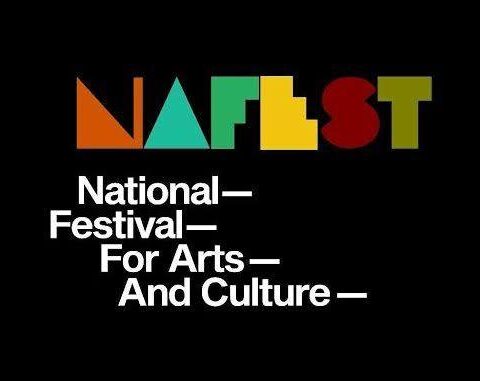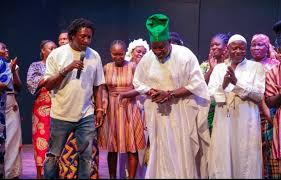By Agbeze Ireke Kalu Onuma, AI-KO
Each one of these quotes is a scalpel. Each one a seed. Achebe didn’t just write – he rewired the soul of a continent.
Reading Achebe has never been a passive act for me – it’s been a reckoning. His words didn’t just inform me; they unsettled me, peeled back layers I didn’t know I was wearing. Achebe gave me language for the ache, the pride, the contradictions of being African – of being Igbo. And Nigerian. He taught me that storytelling is not decoration; it’s survival. That silence is not peace; it’s erasure. And that to live truthfully, I must live intentionally.
This collection of quotes and reflections is my way of sitting with Achebe’s fire – letting it burn through the fog of our present, letting it illuminate paths forward. These aren’t just literary gems. They are tools for living, for resisting, for remembering. I write them down not to admire them, but to apply them. To remind myself – and maybe you too – that Achebe’s voice still speaks, and it’s asking us to answer.
1. “If you don’t like someone’s story, write your own.” (from “Home and Exile”)
Achebe’s challenge is not just literary – it’s existential. In a world where dominant narratives suffocate the voices of the marginalized, this is a call to rebellion. Not the kind that burns buildings, but the kind that builds new ones with words, with truth. We are not bound to the stories others tell about us. We are not the footnotes in someone else’s epic. We are the authors of our becoming. To live intentionally is to pick up the pen, even when our hands tremble, and write ourselves into history – not as victims, but as visionaries.
2. “One of the truest tests of integrity is its blunt refusal to be compromised.” (from “The Trouble with Nigeria”)
Achebe doesn’t romanticize integrity. He makes it sound like a stubborn old man who refuses to bend even when the wind howls. In our time, where compromise is often dressed up as diplomacy, and silence is sold as wisdom, this quote stings. Integrity is not polite. It doesn’t smile for the camera. It walks out of meetings when the soul is being sold. Intentional living demands this kind of courage – the kind that loses friends, jobs, applause – but keeps its soul intact.
3. “We cannot trample upon the humanity of others without devaluing our own.” (from “The Education of a British-Protected Child”)
This is not just a moral statement – it’s a mirror. Every time we mock, exclude, or dehumanize, we chip away at our own reflection. Achebe reminds us that cruelty is a boomerang. In a world of online vitriol and real-world violence, this quote is a balm and a warning. To live intentionally is to see others not as threats or tools, but as mirrors – fragile, sacred, and deserving of dignity. Because when we break them, we bleed too.
4. “When suffering knocks at your door and you say there is no seat for him, he tells you not to worry because he has brought his own stool.” (from “Arrow of God”)
Achebe personifies suffering like an uninvited guest who doesn’t wait for permission. This line is both poetic and brutal. It tells us that pain is not a stranger – it’s family. It doesn’t ask to come in; it knows the way. In our sanitized, curated lives, we often pretend suffering is abnormal. But Achebe says: it’s inevitable. Intentional living means making peace with pain – not glorifying it, but not denying it either. It means learning to sit with it, listen to it, and let it teach us what comfort never could.
5. “Every generation must recognize and embrace the task it is peculiarly designed by history and by providence to perform.” (from “The Education of a British-Protected Child”)
This is Achebe’s call to arms – not with weapons, but with purpose. Our generation is not here by accident. We are the ones history has been waiting for. The ones to heal, to rebuild, to reimagine. But we must first recognize the task. Achebe doesn’t say it will be easy. He says it will be ours. Intentional living means asking: what is my role in this moment? What is my responsibility to the unborn? And then, doing it – tired, afraid, imperfect – but doing it anyway.
6. “Nobody can teach me who I am. You can describe parts of me, but who I am… I have to find out myself.” (from “Arrow of God”)
Achebe’s words here are a quiet rebellion against labels. In a world obsessed with identity – race, gender, tribe, class – he reminds us that the deepest truths are not assigned, they are discovered. You are not your job, your trauma, your tribe. You are a mystery unfolding. Intentional living means walking that path of self-discovery with humility and courage. It means shedding borrowed skins and listening to the whisper beneath the noise: this is who I am.
7. “While we do our good works let us not forget that the real solution lies in a world in which charity will have become unnecessary.” (from “Anthills of the Savannah”)
Achebe pierces through the feel-good veneer of charity. He’s not impressed by handouts. He wants justice. He wants systems that don’t need saving. In our world of NGO selfies and performative kindness, this quote is a scalpel. Intentional living means asking hard questions: Why do people need charity? Who benefits from their dependence? And then, working – not just to feed the hungry – but to dismantle the hunger itself.
8. “My weapon is literature.” (from various interviews and essays)
Achebe’s declaration is not metaphor – it’s strategy. He wielded words like arrows, aimed at ignorance, oppression, and silence. In a time when truth is under siege, literature remains a battleground. To live intentionally is to choose your weapon – be it art, activism, teaching, healing – and use it with precision and passion. Achebe didn’t just write stories. He rewrote destinies.
9. “The white man… has put a knife on the things that held us together and we have fallen apart.” (from “Things Fall Apart”)
This line is not just historical – it’s haunting. Achebe speaks of colonialism not as an event, but as a wound. A severing. And we are still bleeding. Our languages, our kinship systems, our spiritual rhythms – cut. To live intentionally is to stitch back what was torn. Not with nostalgia, but with vision. It means remembering who we were before the knife – and daring to become whole again.
10. “It is praiseworthy to be brave and fearless, but sometimes it is better to be a coward.” (from “Arrow of God”)
Achebe flips the script on heroism. He says: sometimes, survival is smarter than sacrifice. In a culture that glorifies risk and martyrdom, this is a sobering truth. Intentional living means knowing when to fight and when to flee. It means choosing life over applause. Achebe doesn’t mock courage – he redefines it. Sometimes, the bravest thing is to walk away



























